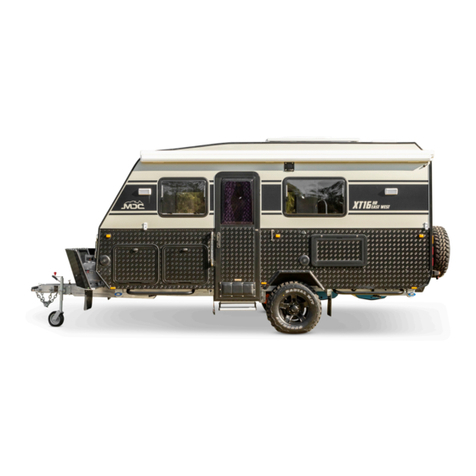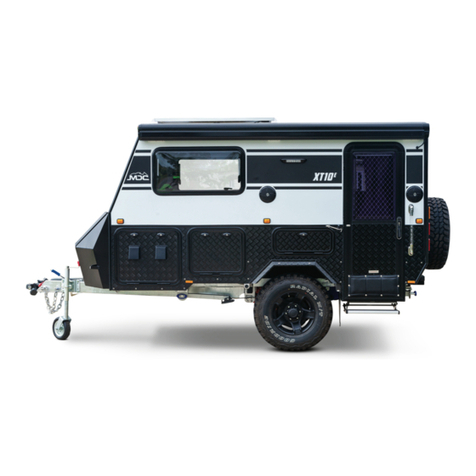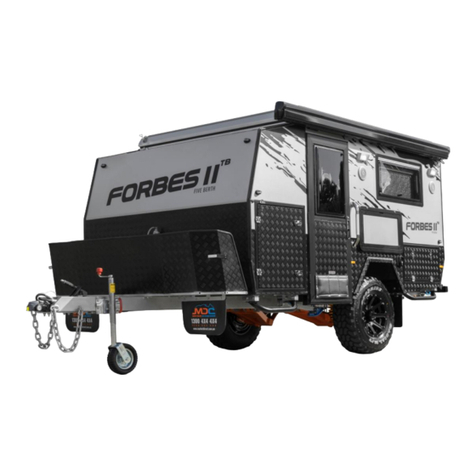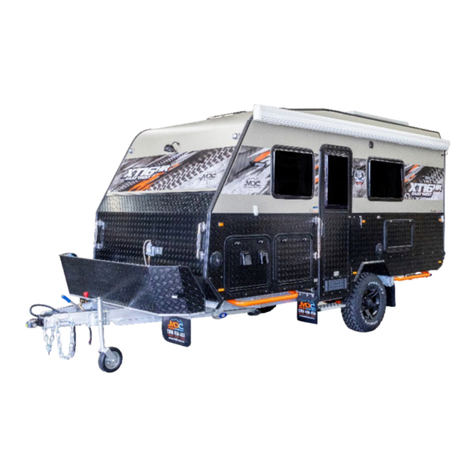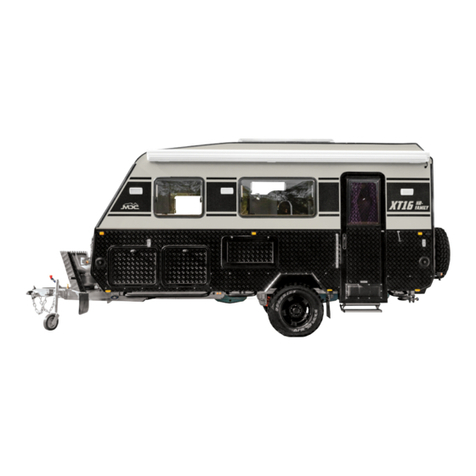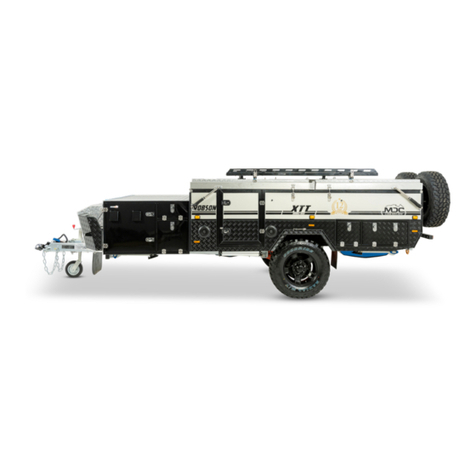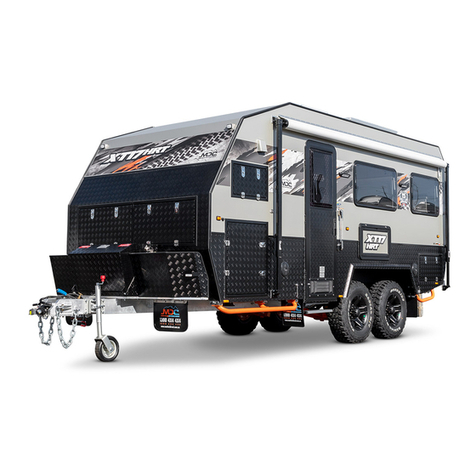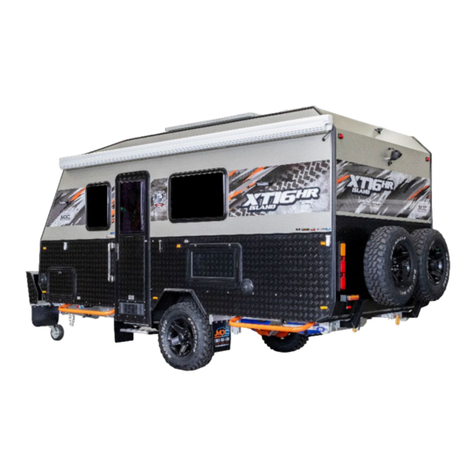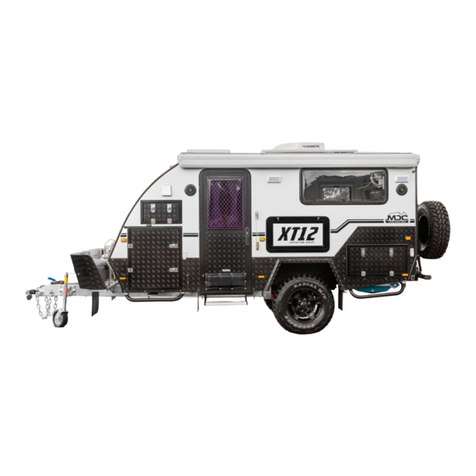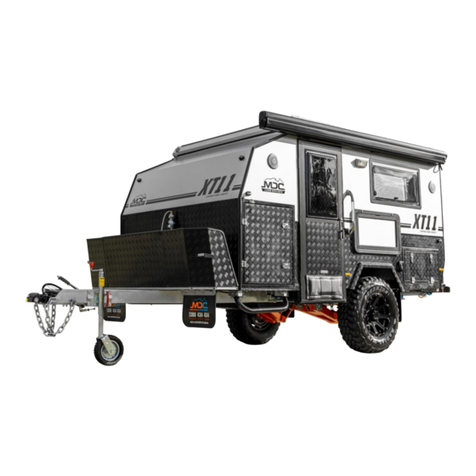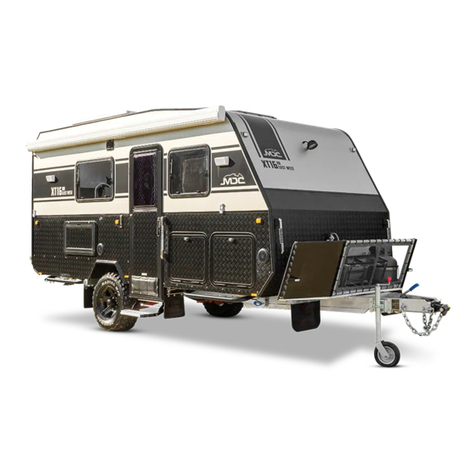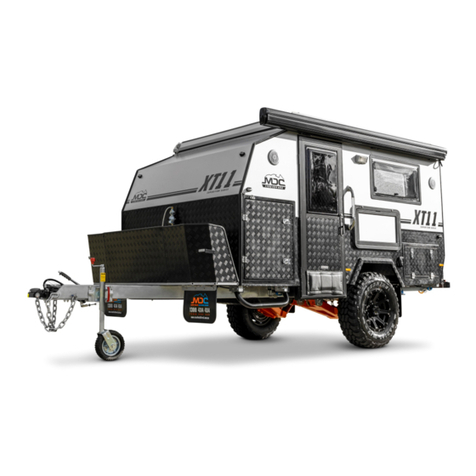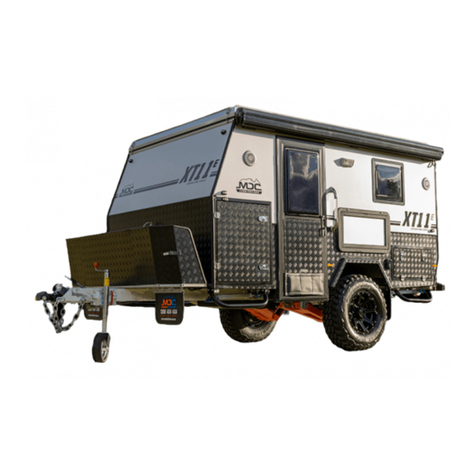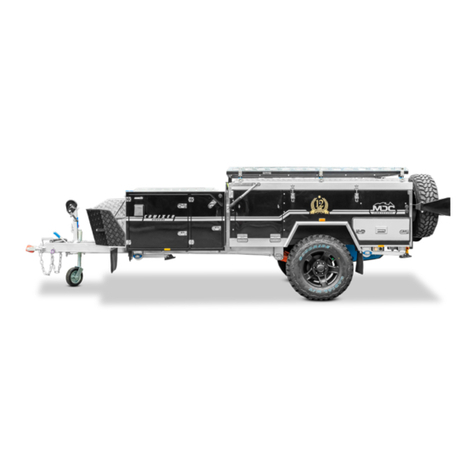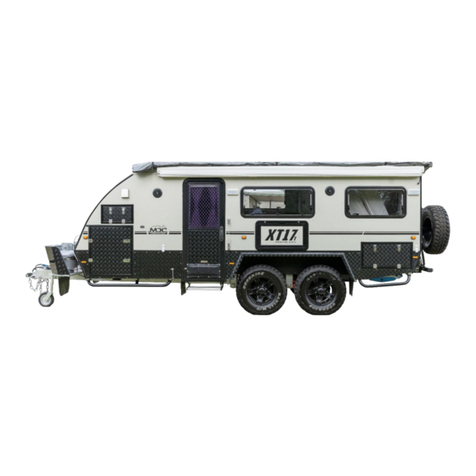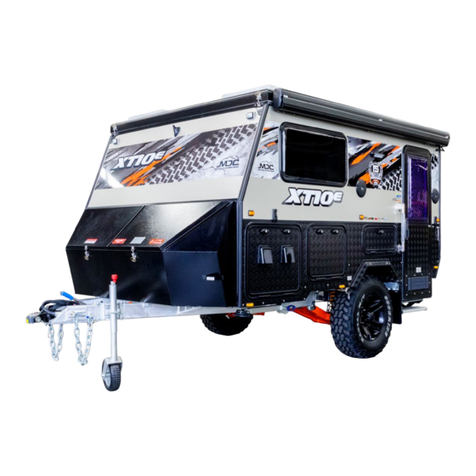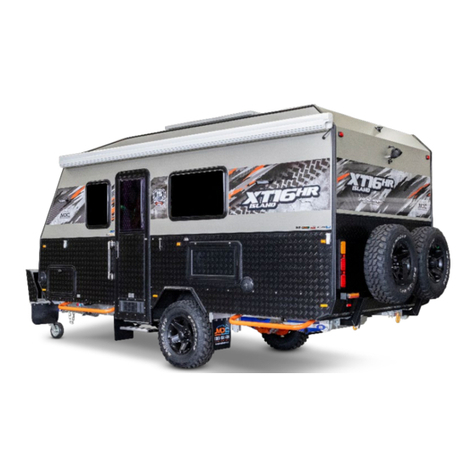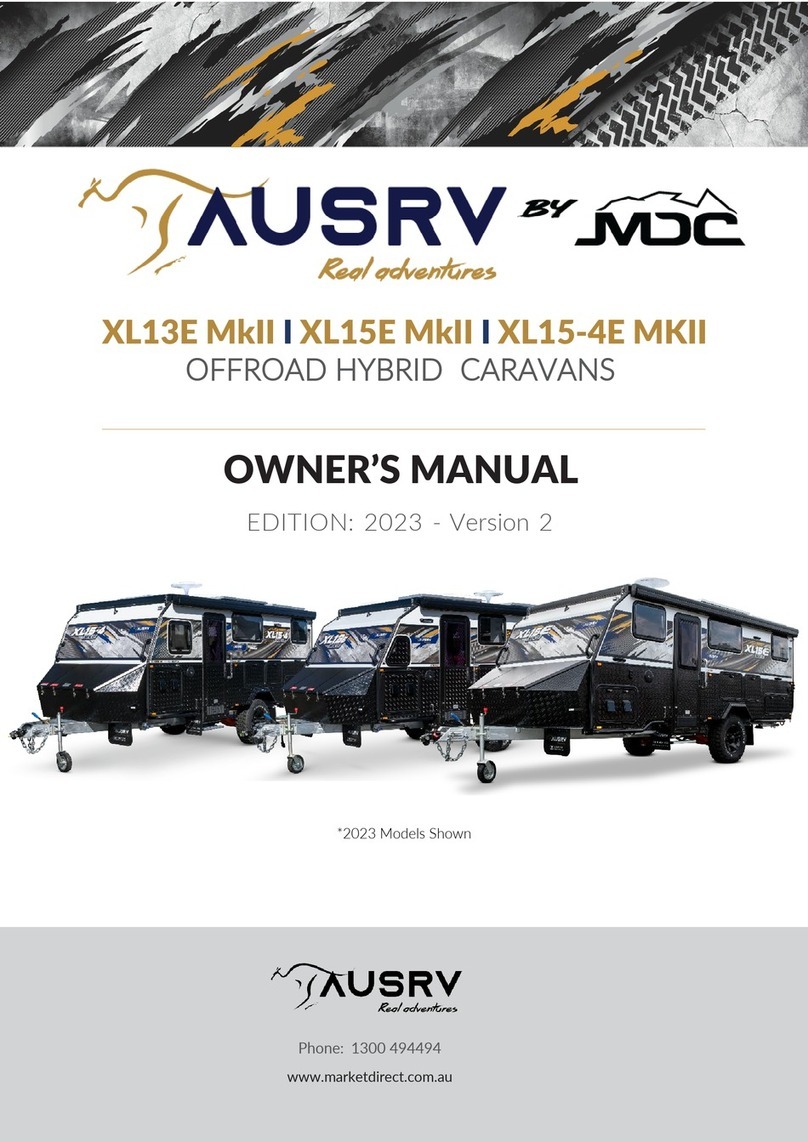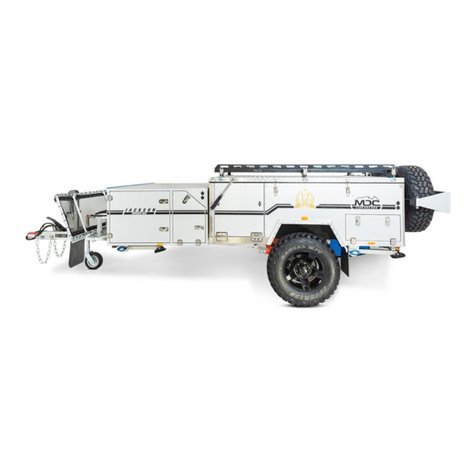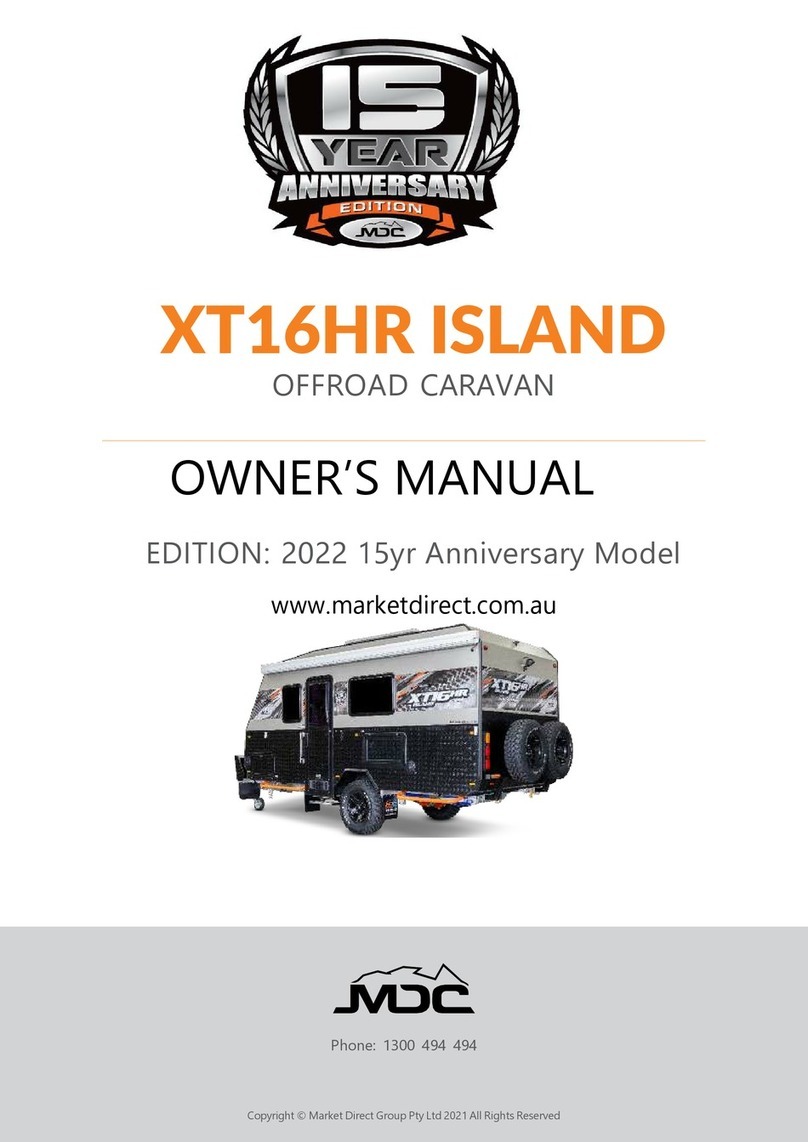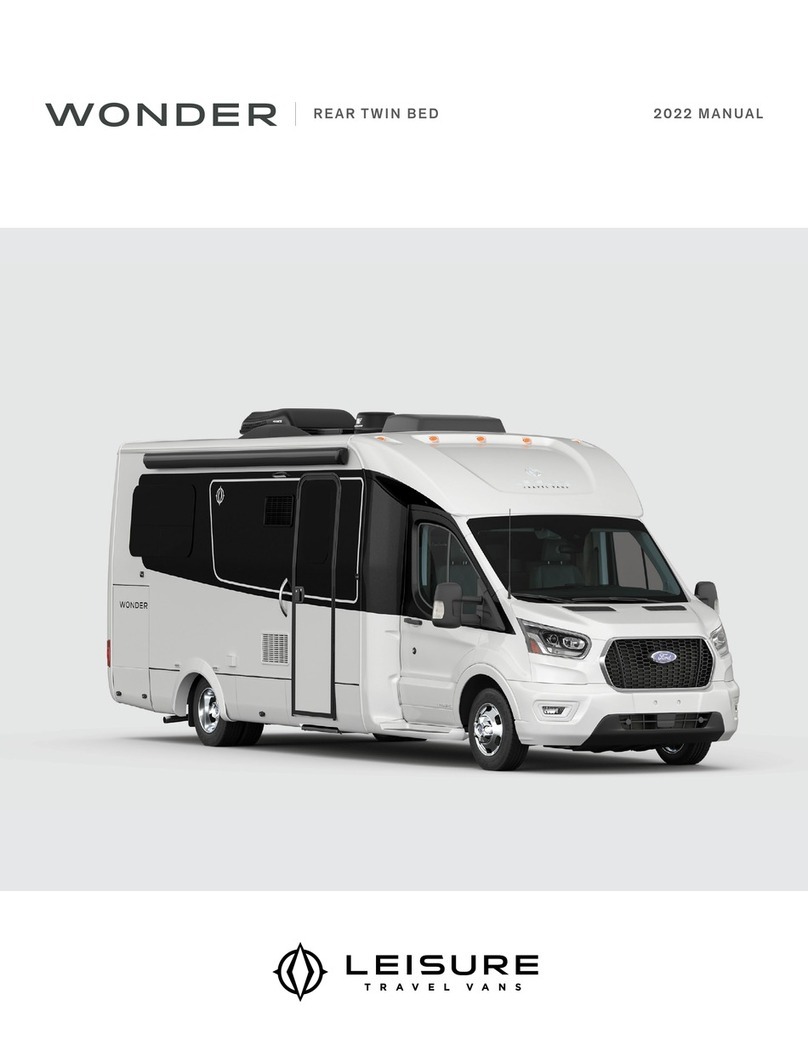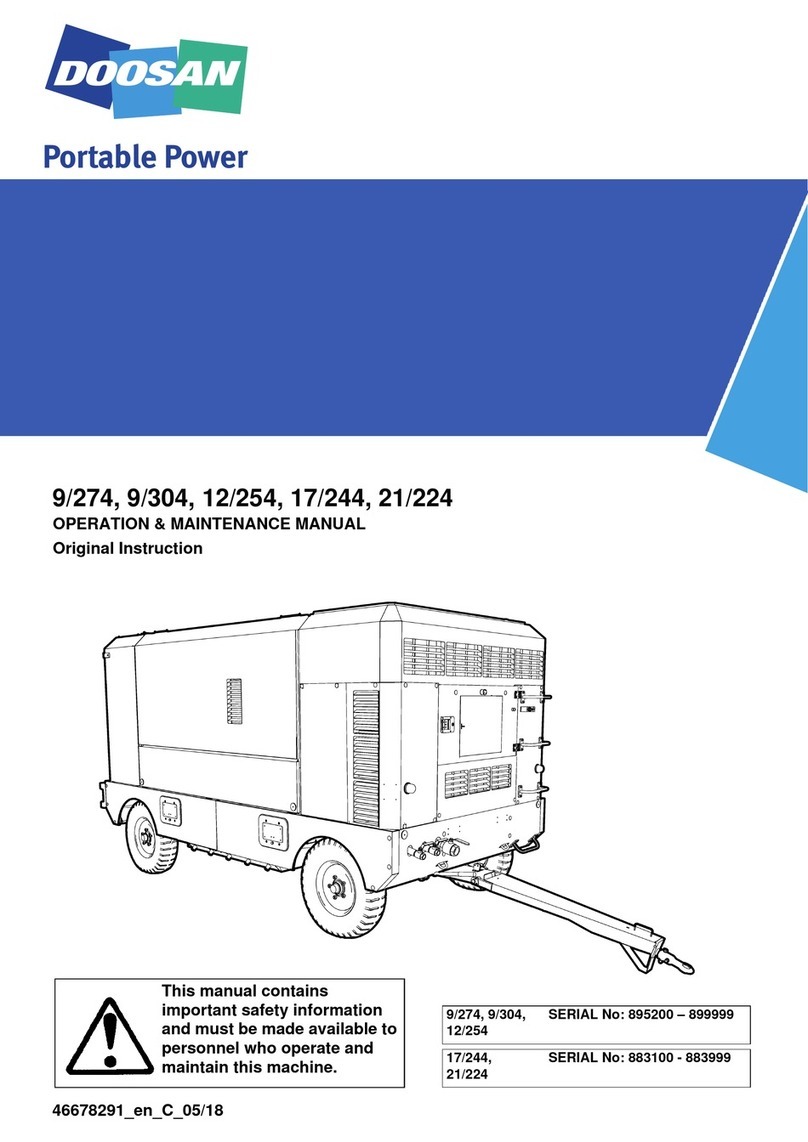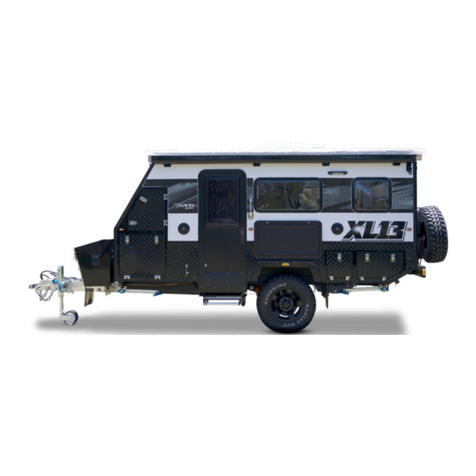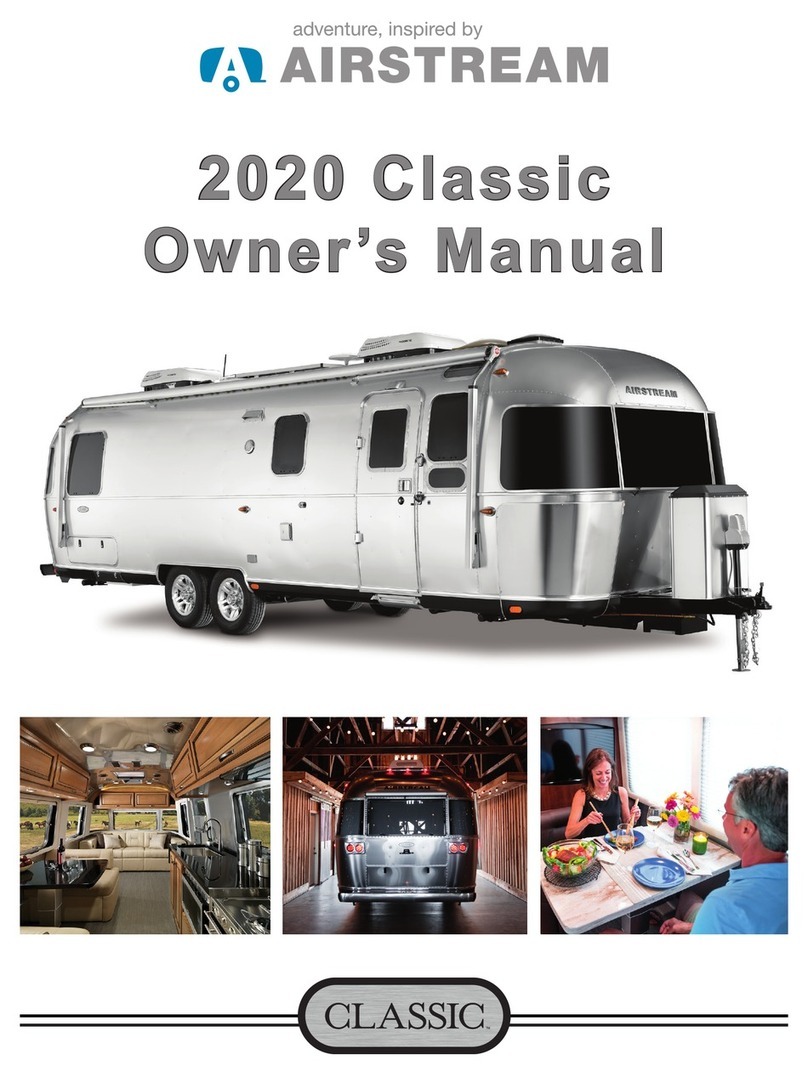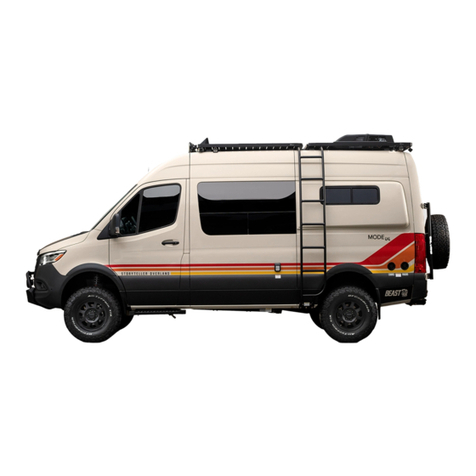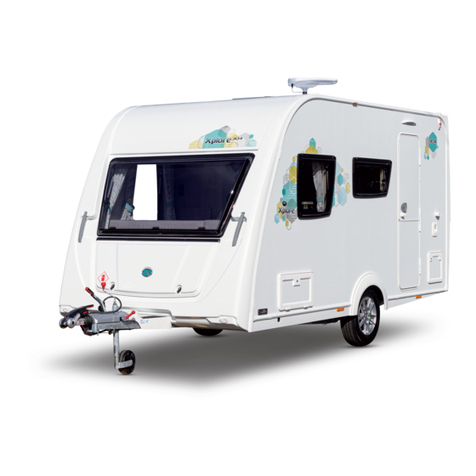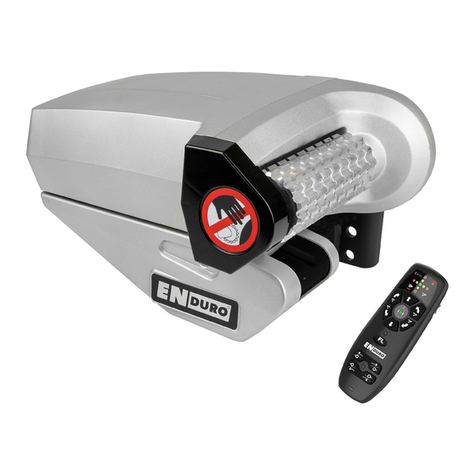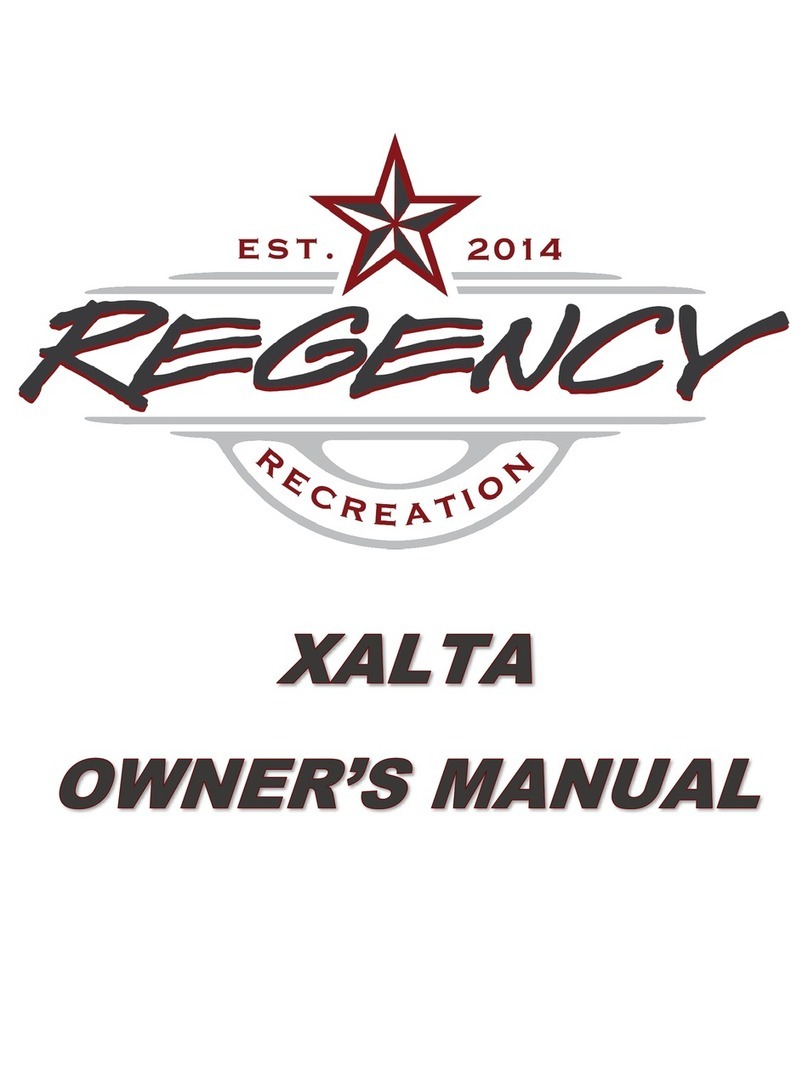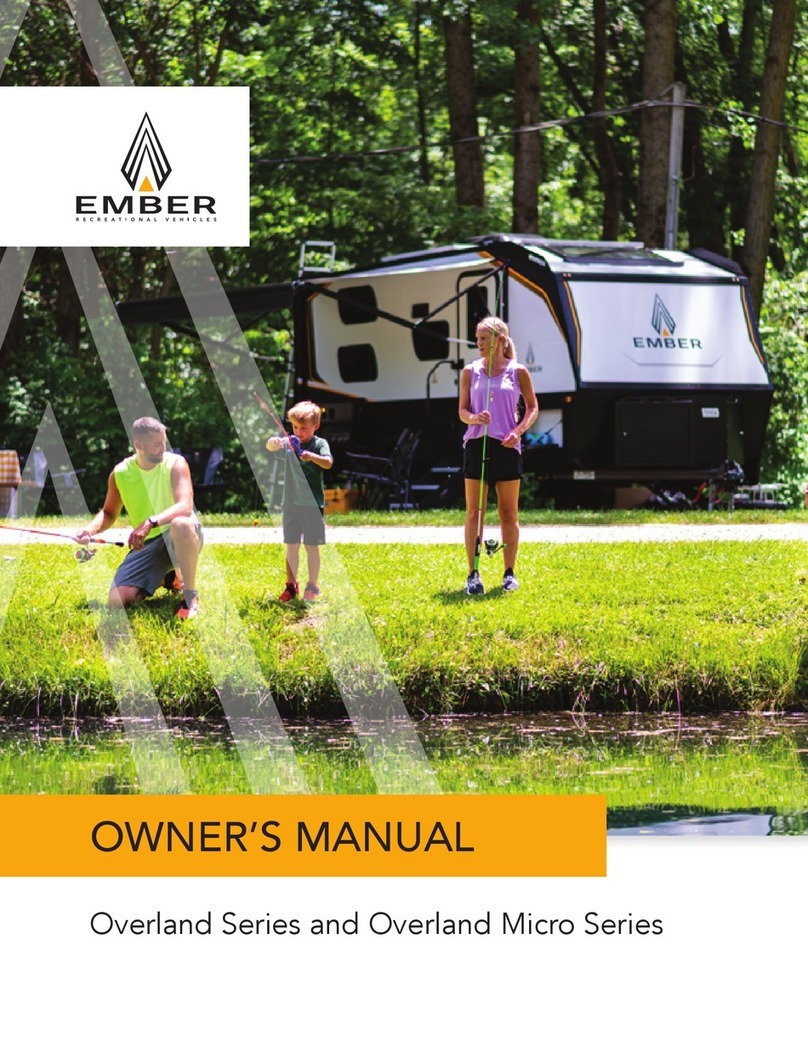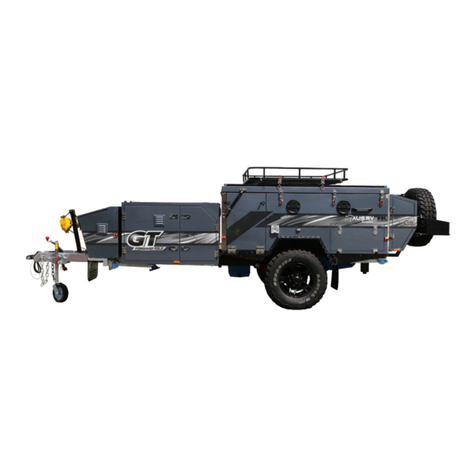
2
Table of Contents
INTRODUCTION ....................................................... 3
Store Locations ........................................................ 4
Contact Details......................................................... 4
ABOUT YOUR HYBRID OFFROAD CARAVAN ......... 5
Specifications........................................................... 5
Bearings and Seals ................................................... 5
Fridge Fitting Chart .................................................. 6
Hitch......................................................................... 6
How to Hitch your coupling ................................. 7
Coupling ............................................................... 9
Uncoupling......................................................... 11
Setting up your Caravan ............................................ 12
Loading Your Caravan............................................ 12
Choosing a Spot to Set Up ..................................... 12
Levelling Your Caravan .......................................... 13
Site Power.............................................................. 13
Electric Awning ...................................................... 13
Leg Rests ................................................................ 14
Kitchen................................................................... 14
Preparing for Bad Weather.................................... 15
Packing Down Your Caravan.................................. 15
Storage & Care .......................................................... 15
Long Term Storage................................................. 15
Interior................................................................... 15
Exterior .................................................................. 15
Torque Settings...................................................... 16
Wheel Nuts ........................................................ 16
Hitch................................................................... 16
Trailing Arm Pivot Bolts ..................................... 16
Brakes and Handbrake........................................... 17
Features ............................................................. 17
Operation........................................................... 17
Trailer Plug Wiring ............................................. 17
Breakaway Switch.............................................. 17
Hand Brake ........................................................ 18
Adjuster ............................................................. 19
Correct Use of Your Electric Brakes....................20
Important Safety Notice.....................................20
Brake Adjustment...............................................20
Brake Cleaning and Inspection...........................20
Magnets..............................................................21
Shoes and Linings ...............................................21
Corrosion Prevention .............................................21
Wheels and Tyres ......................................................22
Highway..............................................................22
Off Road .............................................................22
Jacking Your Caravan..........................................22
Electrical Systems ......................................................22
Chargers & Inverters ..............................................22
Battery Care ...........................................................23
12 Volt Wiring Diagram..........................................24
Control Panel..........................................................26
Gas & Water Systems ................................................26
Hot Water System ..................................................26
Water Pumps..........................................................26
Connecting the Gas ................................................27
Protecting from Mould ................................................28
Pre-Trip Checklist .......................................................28
Useful Accessories .....................................................29
Levelling Blocks ......................................................29
Wheel Chocks.........................................................30
Covers.....................................................................30
Stone Protection ....................................................30
Trouble Shooting ........................................................31
Electrical .................................................................31
Water......................................................................32
Gas..........................................................................32
Brakes.....................................................................33
Handy Tips .................................................................34
Driving Off Road .....................................................34
Trip Planning ..........................................................35
Warranty Statement ...................................................36
Maintenance ...............................................................37
Supplier Contact Details.............................................46
